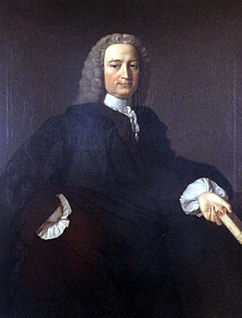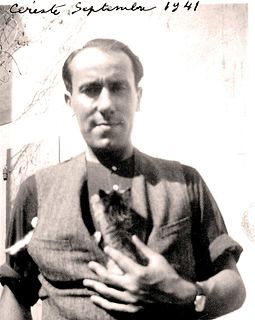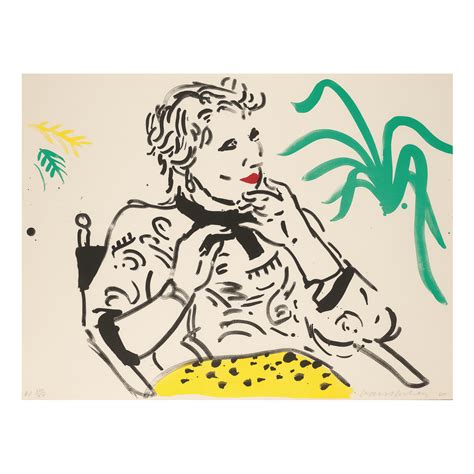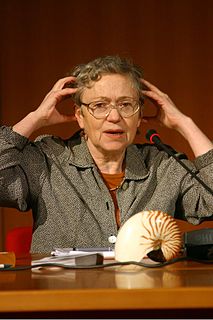A Quote by Francis Hutcheson
Many are really virtuous who cannot explain what virtue is . . . But the powers themselves in reality perform their several operations with sufficient constancy and uniformity in persons of good health whatever their opinions be about them . . .
Related Quotes
Whatever sympathy I feel towards religions, whatever admiration for some of their adherents, whatever historical or biological necessity I see in them, whatever metaphorical truth, I cannot accept them as credible explanations of reality; and they are incredible to me in proportion to the degree that they require my belief in positive human attributes and intervenient powers in their divinities.
The chief difficulty of modern theoretical physics resides not in the fact that it expresses itself almost exclusively in mathematical symbols, but in the psychological difficulty of supposing that complete nonsense can be seriously promulgated and transmitted by persons who have sufficient intelligence of some kind to perform operations in differential and integral calculus.
It must not be supposed that happiness will demand many or great possessions; for self-sufficiency does not depend on excessive abundance, nor does moral conduct, and it is possible to perform noble deeds even without being ruler of land and sea: one can do virtuous acts with quite moderate resources. This may be clearly observed in experience: private citizens do not seem to be less but more given to doing virtuous actions than princes and potentates. It is sufficient then if moderate resources are forthcoming; for a life of virtuous activity will be essentially a happy life.
In many ways, constancy is an illusion. After all, our ancestors were immigrants, many of them moving on every few years; today we are migrants in time. Unless teachers can hold up a model of lifelong learning and adaptation, graduates are likely to find themselves trapped into obsolescence as the world changes around them. Of any stopping place in life, it is good to ask whether it will be a good place from which to go on as well as a good place to remain.
According to great masters, there is no sin and there is no virtue. There is only one thing: that is awareness. If you are aware, you can do anything you want and it is not sin. If you are not aware, you may do so-called virtuous acts, but there is no virtue in them. Out of unconsciousness virtue cannot blossom. It blossoms only when you are full of light, full of love, full of consciousness.
What, indeed, is an atheist? He is one who destroys delusions which are harmful to humanity in order to lead men back to nature, to reality, to reason. He is a thinker who, having reflected on the nature of matter, its energy, properties and ways of acting, has no need of idealized powers or imaginary intelligences to explain the phenomena of the universe and the operations of nature.
Certainly great persons had need to borrow other men's opinions to think themselves happy; for if they judge by their own feeling, they cannot find it: but if they think with themselves what other men think of them, and that other men would fain be as they are, then they are happy as it were by report, when, perhaps, they find the contrary within.
All the martyrs in the history of the world are not sufficient to establish the correctness of an opinion. Martyrdom, as a rule, establishes the sincerity of the martyr, - never the correctness of his thought. Things are true or false in themselves. Truth cannot be affected by opinions; it cannot be changed, established, or affected by martyrdom. An error cannot be believed sincerely enough to make it a truth.
If the state cannot be entirely composed of good men, and yet each citizen is expected to do his own business well, and must therefore have virtue, still inasmuch as all the citizens cannot be alike, the virtue of the citizen and of the good man cannot coincide. All must have the virtue of the good citizen - thus, and thus only, can the state be perfect; but they will not have the virtue of a good man, unless we assume that in the good state all the citizens must be good.
If a man of good natural disposition acquires Intelligence [as a whole], then he excels in conduct, and the disposition which previously only resembled Virtue, will now be Virtue in the true sense. Hence just as with the faculty of forming opinions [the calculative faculty] there are two qualities, Cleverness and Prudence, so also in the moral part of the soul there are two qualities, natural virtue and true Virtue; and true Virtue cannot exist without Prudence.





































